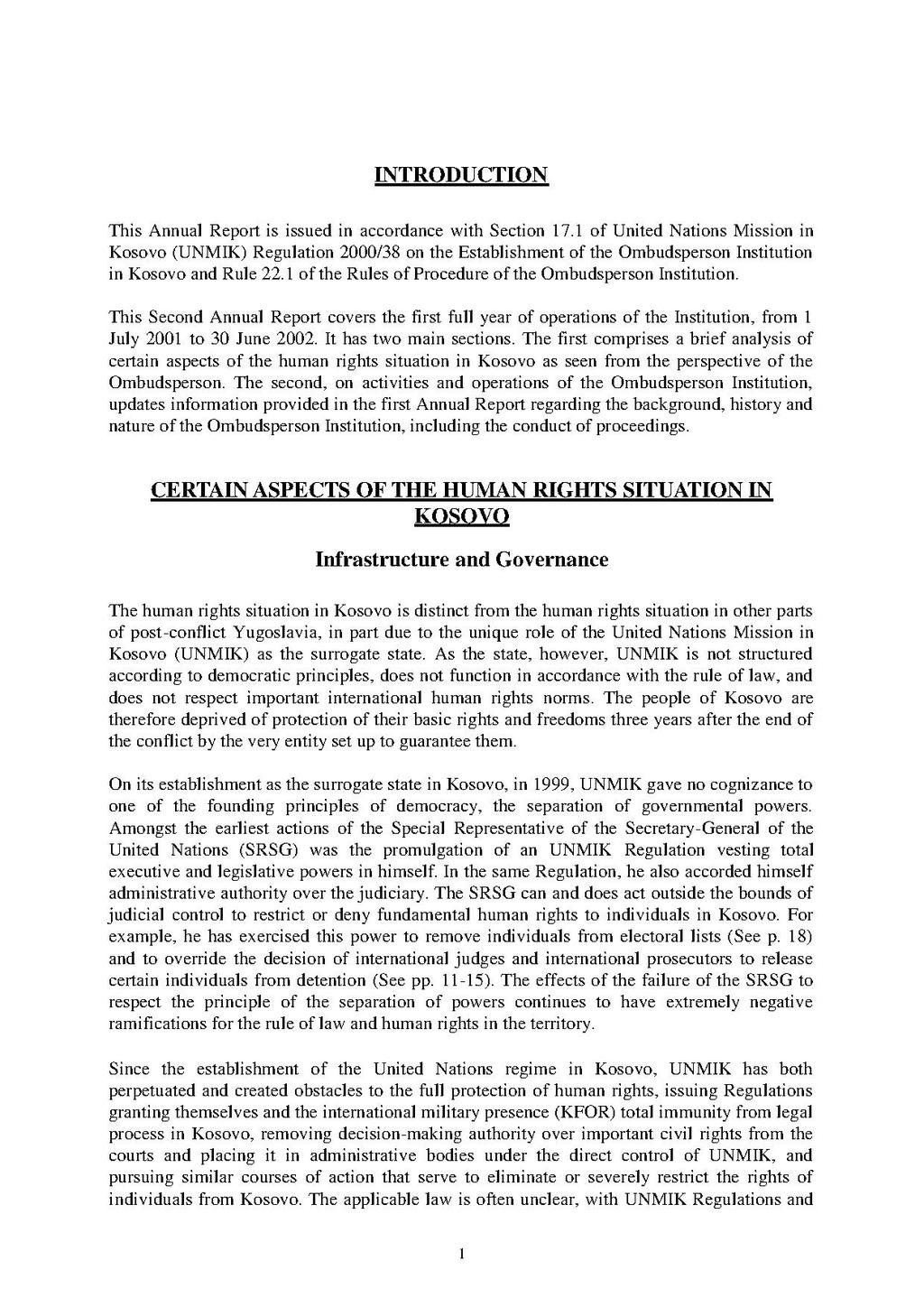INTRODUCTION
This Annual Report is issued in accordance with Section 17.1 of United Nations Mission in Kosovo (UNMIK) Regulation 2000/38 on the Establishment of the Ombudsperson Institution in Kosovo and Rule 22.1 of the Rules of Procedure of the Ombudsperson Institution.
This Second Annual Report covers the first full year of operations of the Institution, from 1 July 2001 to 30 June 2002. It has two main sections. The first comprises a brief analysis of certain aspects of the human rights situation in Kosovo as seen from the perspective of the Ombudsperson. The second, on activities and operations of the Ombudsperson Institution, updates information provided in the first Annual Report regarding the background, history and nature of the Ombudsperson Institution, including the conduct of proceedings.
CERTAIN ASPECTS OF THE HUMAN RIGHTS SITUATION IN KOSOVO
Infrastructure and Governance
The human rights situation in Kosovo is distinct from the human rights situation in other parts of post-conflict Yugoslavia, in part due to the unique role of the United Nations Mission in Kosovo (UNMIK) as the surrogate state. As the state, however, UNMIK is not structured according to democratic principles, does not function in accordance with the rule of law, and does not respect important international human rights norms. The people of Kosovo are therefore deprived of protection of their basic rights and freedoms three years after the end of the conflict by the very entity set up to guarantee them.
On its establishment as the surrogate state in Kosovo, in 1999, UNMIK gave no cognizance to one of the founding principles of democracy, the separation of governmental powers. Amongst the earliest actions of the Special Representative of the Secretary-General of the United Nations (SRSG) was the promulgation of an UNMIK Regulation vesting total executive and legislative powers in himself. In the same Regulation, he also accorded himself administrative authority over the judiciary. The SRSG can and does act outside the bounds of judicial control to restrict or deny fundamental human rights to individuals in Kosovo. For example, he has exercised this power to remove individuals from electoral lists (See p. 18) and to override the decision of international judges and international prosecutors to release certain individuals from detention (See pp. 11-15). The effects of the failure of the SRSG to respect the principle of the separation of powers continues to have extremely negative ramifications for the rule of law and human rights in the territory.
Since the establishment of the United Nations regime in Kosovo, UNMIK has both perpetuated and created obstacles to the full protection of human rights, issuing Regulations granting themselves and the international military presence (KFOR) total immunity from legal process in Kosovo, removing decision-making authority over important civil rights from the courts and placing it in administrative bodies under the direct control of UNMIK, and pursuing similar courses of action that serve to eliminate or severely restrict the rights of individuals from Kosovo. The applicable law is often unclear, with UNMIK Regulations and
1
